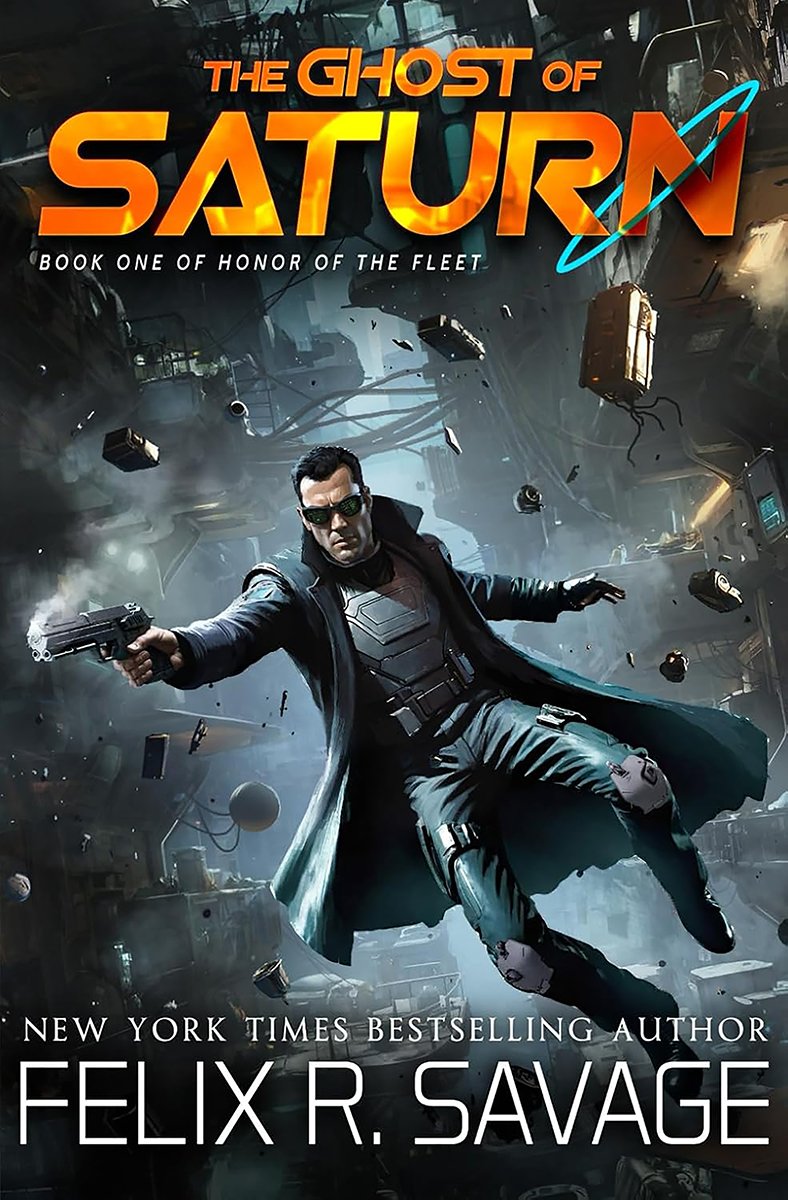The Future of Space, Survival, and Humanity’s Next Frontier
Felix R. Savage discusses his unique storytelling approach, blending hard science fiction with fast-paced action, reflections on rebellion, and the future of space exploration, all while keeping one step ahead of the lizard people.
Felix R. Savage is a writer who thrives on defying expectations. A storyteller at heart, his work blends meticulous scientific detail with unrelenting action, always pushing the boundaries of what science fiction can achieve. His personal history—woven with intrigue, displacement, and a deep-rooted fascination for the extraordinary—mirrors the spirit of his novels, where survival, rebellion, and the vast unknown take centre stage.
With a background as eclectic as his fiction, Savage has spent his life immersed in cultures spanning continents, from the windswept Hebrides to the neon-lit streets of Tokyo. His narratives, infused with both rigorous scientific speculation and a wry, often irreverent wit, reflect a mind constantly at play with the possibilities of the future.
In this exclusive interview for Reader’s House Magazine, Savage speaks candidly about his approach to storytelling, his thoughts on the future of space exploration, and the fine line he treads between hard science and compelling fiction. Always one step ahead—whether from the lizard people or literary convention—he remains a writer impossible to ignore.
What inspired you to blend elements of conspiracy theories and science fiction in your personal biography?
My bio, as you can probably tell, is a story that blends truth and invention, just like my novels. Stories don’t have to be factually true in order to be essentially true. If I pretended to tell you the empirical truth about my life, it’d end up being a mixture of humble-bragging and lame humor calculated to make me seem relatable. And that’d be a lie, because I am not the most relatable person in the world. Not even close. That’s probably got something to do with spending my childhood on the run from the lizard people.
Your novels often explore themes of survival and resilience—how have your own experiences shaped these narratives?
Well, I could tell you about the time the lizard people finally caught up with us. They attacked our house in the middle of the night and killed my mother. But those details are a little too personal. Let’s talk about space!
OK! In the Eighth Continent series, Nick Morrison faces both personal and external conflicts—what drew you to tell his story in a lunar setting?
We’re living at a very exciting time where our own technological achievements are forcing a choice on us as a species: we’ll either go into space, or wind up in some hellish dystopian paradigm of decline derived from HG Wells by way of Neal Stephenson. I’m an optimist, so I believe we’ll head up and out. Naturally, our first stop will be the Moon, a.k.a. the eighth continent. Like the rest of my work, this series is an attempt to chart our path forward by suggesting various plausible challenges, solutions, pitfalls, and disasters. Forewarned is forearmed. One thing I’m very clear about is that human nature never changes—so Nick not only has to battle his enemies, but also confront the enemy within.
Your work often combines hard science fiction with fast-paced action—how do you balance scientific accuracy with engaging storytelling?
Since my role as a science fiction writer is to invent the future, it’s important that all the science in my books is either real or could be real, given feasible technological advances. Granted, I’ve occasionally made exceptions to this rule, such as the FTL drives and genetic f**kwittery in the Cauldron of Stars series—er, and the Interstellar Railroad—and the aliens—and oh Lord, the space dragons… all right, so I break my own rule quite often in the name of crafting a damn good story. You gotta have fun! But in a series like Honor of the Fleet, I’m explicitly keeping the tech real or will-soon-be-real, and that is part of the fun.
Honor of the Fleet is your newest series—how did you conceptualise the near-future setting?
I’ve written about FTL—see above—and I’ve written about aliens. But let’s face it, these tropes are fantasy, not science fiction. I’m not knocking fantasy. It’s often truer than other genres. I may even commit fantasy again myself one of these days—watch this space! Still, as I get older, I feel more of a responsibility to the core mission of the science fiction genre. If all we do is prattle about unobtainium-powered galactic empires, are we really serving our readers?
I love my readers and am fiercely committed to playing fair with them. That’s why you’ll see me openly evolving in terms of how I conceptualise a damn good time in the future. It would be deceptive to pretend that I believe someone or something is coming to save us, when I don’t any longer, if I ever did.
But if you take away those fabled gamechangers—aliens invade! A lone genius invents wormholes! Warp speed ahead to, er, Star Trek crossed with Star Wars!—what’s left? Us. Alone. Stuck in this rotten little, lonely little, beautiful little solar system. So following on from the Eighth Continent series, I decided to find out what kind of science fiction is possible when all you have to work with is reality. Spoiler alert: it’s f**king terrifying.
There will be a total of seven books in the series, and I expect them all to be out by mid-2026.
Given your deep appreciation for Japanese culture, has it influenced your writing in ways beyond setting and character backgrounds?
I lived in Japan for years, held down a day job there, got married there, all three of my children were born there—but I never felt in the least Japanese until I moved back to the US. Then I realized that living in Japan had changed me, and by extension my writing. When I was living in the US the first time around—before I ever published anything—I implicitly believed in the possibility of escape. That’s why I moved to Japan. But now my writing reflects my conviction that there’s no such thing as escape, short of a bullet to the brain or some less kinetic equivalent. Wherever you go, there you are. And there, too, are other people. That’s what makes it all so exciting! The only problem is that the lizard people inevitably catch up. I don’t know how much longer we’ll be able to stay here, but I’m confident that the connections I made in Japan will provide us with our next safe harbor where I can carry on with my mission.
EDITOR’S CHOICE
A thrilling blend of mystery, action, and intricate world-building, Felix R. Savage crafts a compelling sci-fi adventure in space.



